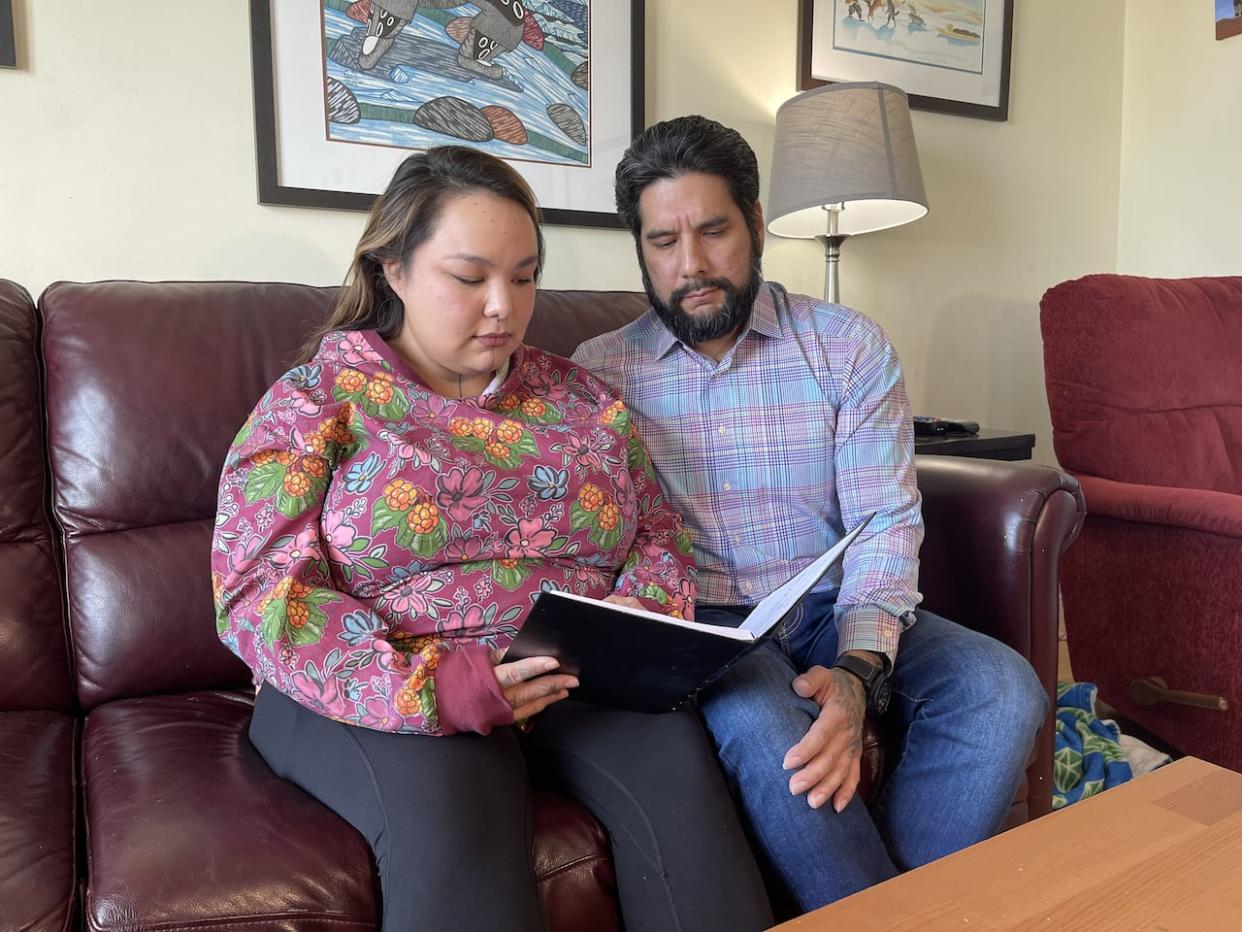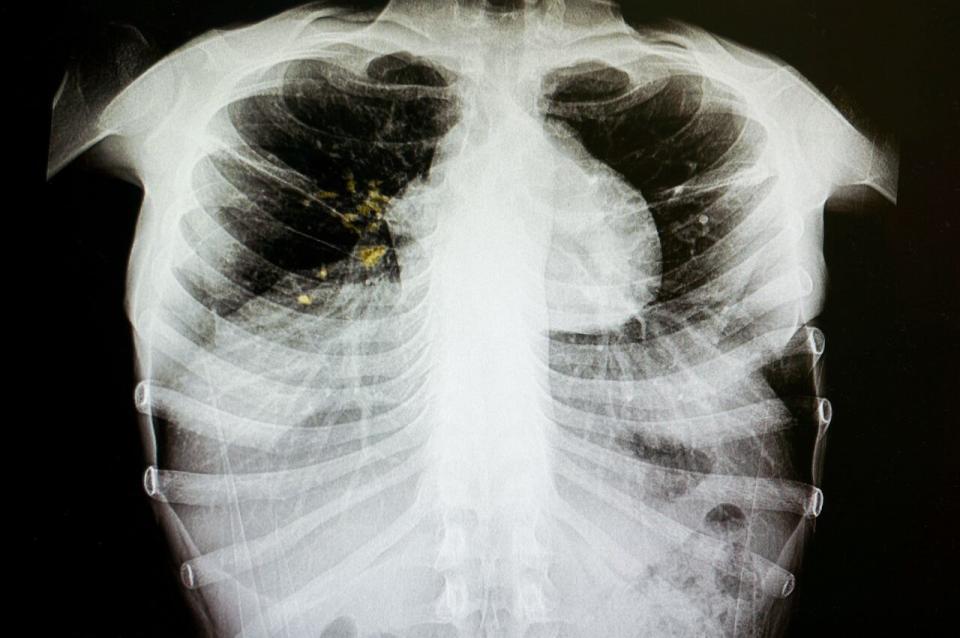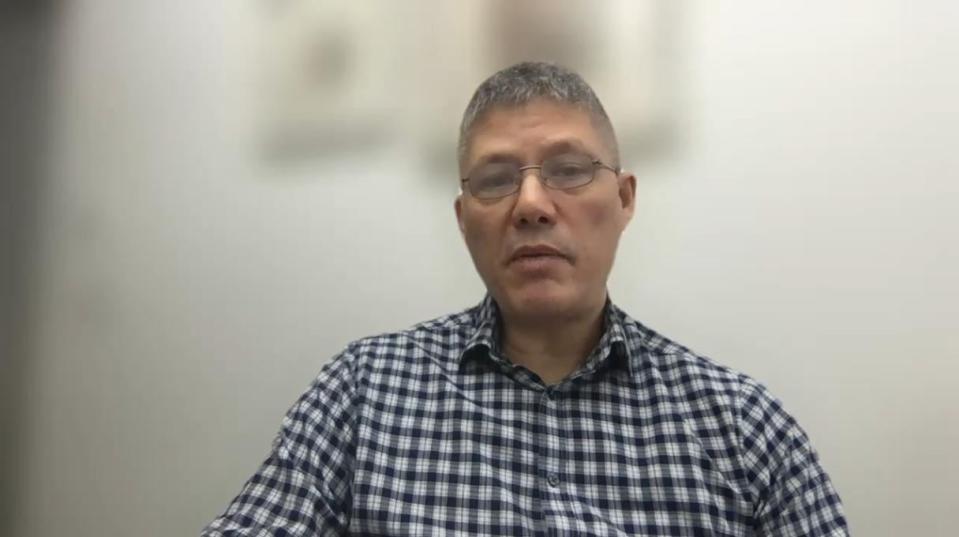Nunavut family speaks out after 8-year-old given tuberculosis medication meant for another child

When Jaffar Gebara found out that his eight-year-old daughter was being given medication for sleeping tuberculosis at her school, he was shocked.
Even more shocking was that his daughter didn't have tuberculosis.
"I'm sad that I let my daughter down and I wasn't told about this or given any consent," said Gebara. "I'm the parent and ... they gave her medication without informing me and continued to do so behind a parent's back."
Gebara said his daughter was given five doses of tuberculosis medication from a public health assistant at Joamie Ilinniarvik School during a screening clinic last year. The doses were administered from October to December.
His family wasn't notified until January, he said.
Gebara said his daughter did not experience any any visible or immediate side effects from the medication.
Tuberculosis rates in Nunavut are the highest in the country, with several communities still experiencing active outbreaks. The rate of tuberculosis among Inuit in Canada is nearly 300 times higher than for Canadian-born, non-Indigenous people.
Doses intended for a different child
In an email addressed to Gebara and his partner, Nicole Etitiq, that was obtained by CBC News, Iqaluit Public Health (IPH) manager Jenny Begin acknowledged the five doses had been given to their child in error.
"The manager of Public Health was notified that a child had received TB medications intended for another child. The manager then met with the TB physician to review and discuss the incident," Begin wrote.
Begin wrote that she first found out about the incident on Jan. 17 and discussed the incident with the tuberculosis physician.
The next day, according to Begin's email, an internal investigation was completed in consultation with Joamie School and the tuberculosis team at IPH and Gebara and Etitiq were notified.
Gebara and Etitiq said they should have been notified by IPH as soon as the health authority found out.
They met with IPH the day after, who offered a medical evaluation with the tuberculosis physician. During the meeting, Etitiq said the assistant who delivered the medication did not verify Gebara's daughter's birthday and was told by IPH that the assistant met with Gebara's daughter for less than 10 minutes before giving the medication.
"How can you say that you have a rapport with a child in that short amount of time?" said Etitiq.

Tuberculosis is a serious infectious disease that mainly affects the lungs, but it is preventable and curable. (Shutterstock)
Public health doing 'comprehensive review'
Begin's email said they are in the process of reviewing how tuberculosis medication is administered and that a review "will be comprehensive and take some time."
"In the immediate term, we have already reviewed patient identification policies with ALL staff," the email continued. "In addition, no child will receive TB medications without a parent/guardian present to help confirm identity."
"Again, we are terribly sorry that this occurred, and we commit to working to improve our processes."
Since that email, dated Jan. 24, Gebara and Etitiq said they have been unable to make contact with anyone at IPH to book the evaluation.
"I had asked for a direct line for the doctor on hand, but she said, 'Call us, I'm usually here,'" Etitiq said of Begin. "That was not helpful and I had left a message asking her to call us back. I gave my number, I gave [Gebara's] number and we didn't have a response."
History repeats itself
For Etitiq, the system reminds her of similar practices that existed in residential schools.
"My own grandma's daughter was taken away when she had TB and was never brought back," she said. "It was only two years ago that they finally found her remains. Our experience with TB is ongoing. The rest of the world, they don't have experience with TB."
"We're in an epidemic right now."
Etitiq says because of her family's history with residential schools, she feels anxious going to hospitals because she can't trust they will do their job well.
"I always find that people come up here, try to make as much money as they can just to get out," she said. "Or they come up here, work hard, make their money, but then they leave. The people don't invest in our communities and I'm sick of feeling like we're not human."
Etitiq calls the process "ongoing colonization."
"We need Inuit-specific policies. We need Inuit-specific approaches. We need to hire staff that will have that care and knowledge of families," she said. "We have unilingual elders, we have unilingual people. How can I feel confident in sending children to school or confident in going to the hospital when our experiences have been so horrible?"
The Department of Education declined interview requests from CBC News to speak with the principal of Joamie School as well as the department itself.
We're in an epidemic right now. - Nicole Etitiq on the state of tuberculosis in Nunavut
The Department of Health declined to comment on the case of Gebara's daughter, citing patient confidentiality and privacy concerns, but Dr. Sean Wachtel, Nunavut's chief public health officer, said an internal review of the territory's TB processes is underway.
"We are very cognizant of the historical trauma that surrounds TB and the way that it was treated and diagnosed and in fact dealt with in the past," he said. "We are endeavouring to do things very differently now whilst recognizing trauma from the past that is still present, yet still trying to effectively treat the disease."
Wachtel said as part of the review, they would meet with their partners that also work on eliminating tuberculosis, such as the Department of Education, the individual District Education Authorities and Nunavut Tunngavik Incorporated.

Dr. Sean Wachtel is the chief public health officer of Nunavut. (TJ Dhir/CBC)
While IPH promised to no longer administer medication at school, Etitiq says that should have never happened anyway.
"We just want policies changed," she said. "We want people to be held accountable. We were not told of any reparations."
"School is a place of learning, a hospital is a place of health," Gebara added. "They shouldn't be mixed."

